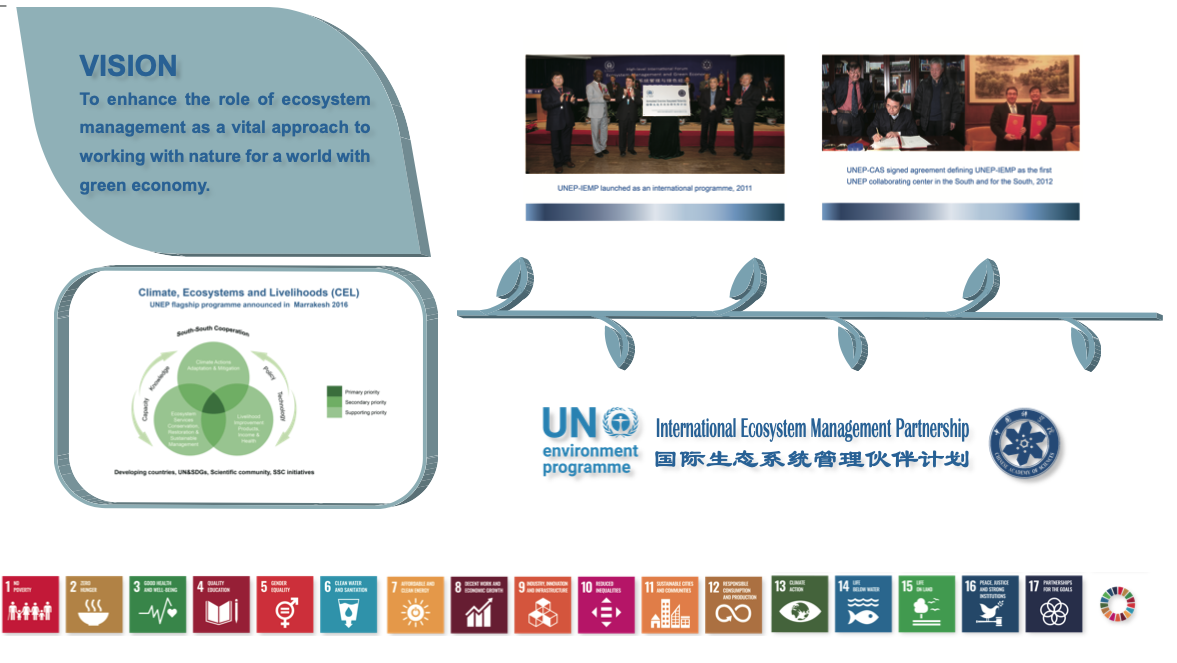Background
Since 2016, UNEP-IEMP has been implementing a decade-long Flagship Programme on Climate, Ecosystems and Livelihoods (CEL).
Objective
As a major South-South cooperation initiative supported by UNEP and China, the CEL programme is designed to assist developing countries in delivering the SDGs and climate targets while protecting their ecosystems and improving the livelihoods of their people.
Work
According to the framework of the programme (see the figure below), UNEP-IEMP focuses its work on the nexus of climate change, ecosystem services and sustainable livelihoods as the primary priority.
More particularly, UNEP-IEMP encourages cross-sector and multi-stakeholder cooperation, enhances interdisciplinary research that brings together natural science, economics and social science, and strives for breakthroughs that cross disciplinary boundaries.

CEL Flagship Programme
Throughout the duration of CEL programme, UNEP-IEMP dedicates to provide countries with assistance in
- Monitoring and assessment
- Capacity building
- Technology demonstration
- Science for policy
Region Coverage
In terms of geographic coverage, the CEL programme focuses on protecting the most fragile ecosystems, such as drylands, river basins and coastal zones in Asia-Pacific, Central Asia and Africa.
Project Phases
The programme comprises of three phases:
- Kick-off (2016-2018)
- Development (2019-2021)
- Scaling up (2022-2025)
Partners
The programme draws on the relevant knowledge, expertise and other resources of a substantial network of partners- both locally and globally. Chinese Ecosystem Research Network (CERN), as part of CAS and one of the largest national ecosystem monitoring and research networks in the world is the major technical back-up source for the programme.


